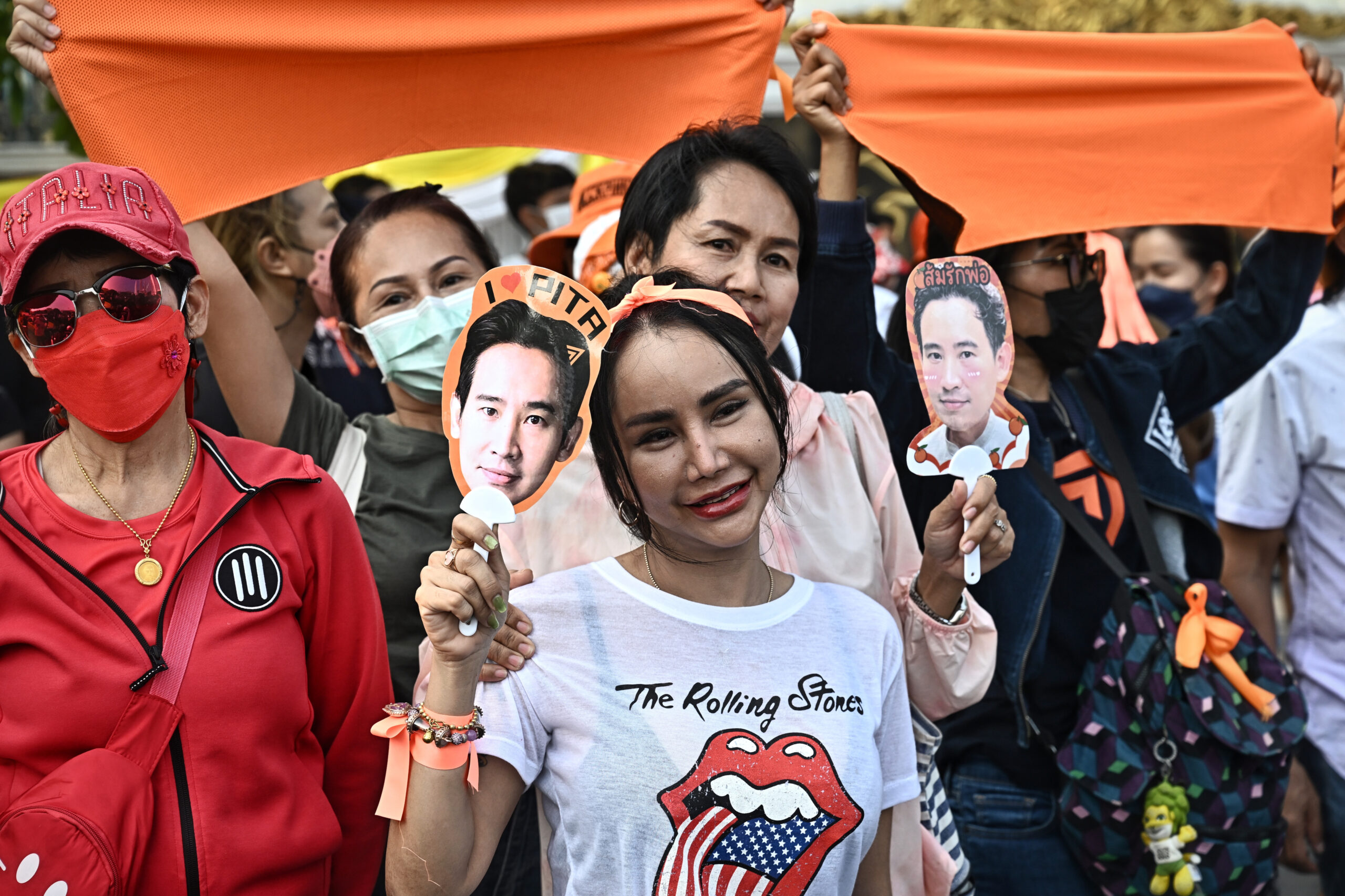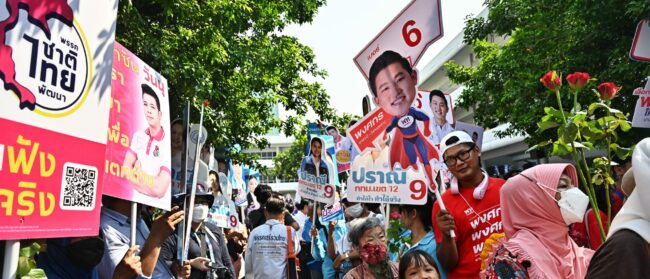The Thai political map is now painted with orange, the colour representing the opposition Move Forward Party (MFP) which swept away the competition in an unprecedented victory in Sunday’s general election.
The party, which secured 151 of 500 seats in the lower House of Representatives, has proved that typical economic populist, vote-buying and patronage politics could be on the way out – and hopefully replaced by a more progressive politics that centres on actual policies.
For more than two decades, politics and elections have primarily been dominated by an economic populism that allowed the Pheu Thai party to enjoy monopoly power in the Thai political market.
But with the new popularity of MFP, the political landscape is quickly changing.
With its progressive views and youthful following, MFP’s ideology was the main contributing factor to this year’s original political campaign. The party stressed the need to restructure political power so as to ensure the reallocation of public resources. This helped enable it to successfully reconnect and re-energise after the dissolution of its predecessor Future Forward Party in 2019.
Despite the overwhelming support, it’s unclear if the party will be allowed by the conservative establishment to act on its mandate from the voters.
This leaves some uncertainties among the Thai population who are now left to wonder what the consequences of this victory are to the future of Thailand and its democratic progress – and whether the country can ever evolve without military intervention.

Youths voted for a change
One might argue the expansion and accessibility of the internet – which links people across the country to social media – was perhaps the main contributing factor to the achievement of MFP.
But the truth is that popularity has a lot more to do with the shared belief in liberty and freedom between the party and the youths of its support base. These are rights that have long been suppressed by the Thai military and strictly hierarchical political and societal structure.
Young people have cracked the glass ceiling to assert their role and influence to reshape Thai society. The results of this election shows that democratic values have taken a deeper root in Thailand.
With 3.3 million brand-new voters who very likely voted for their new alternative for a change, the MFP was perceived as a major threat to the conservative status quo that sees democracy as a threat to national security and society.
As reflected in the United Thai Party campaign for incumbent Prime Minister Prayuth Chan-o-cha, leader of the 2014 military coup, a dream for a Thailand based on equality with public resources allocated to serve the interest of the people can be a threat for the self-appointed defenders of ‘Thainess’ and the existing power structure.
The 2023 election is a turning point in Thai elections and politics, where social inequality, including LGBT+ rights and the legalisation of sex work, has established itself to be a main part of the political campaigns and discourses. Even still, the normalisation of debates on such issues makes the conservatives uncomfortable and determined to oppose these societal trends.
Even political movements built on a less conservative platform may take notice of this moment.
The political mantra of the Pheu Thai “Prachathipatai Kin Dai”, or “eatable democracy”, allowed the party to maintain its influence over Thai elections in the past. But the emergence of a more progressive set of values from MFP has apparently eaten into the appeal of the once-dominant opposition.
The unrealised landslide dream of Pheu Thai in this election demonstrated that utilising the Thai patronage system and typical economic populist campaigns may no longer be enough.
Meanwhile, riding high on their electoral victory, supporters of MFP see this as the beginning of a new era of Thai politics in which the people wield power and the government respects and protects their rights.
However, the question remains on whether MFP leader Pita Limjaroenrat can successfully win the parliamentary vote to become prime minister, given that conservative senators see his victory as a threat to Thai nationalism. And the very last question – perhaps the most important of all – is whether the MFP can truly prevent another military intervention and ensure that liberal democracy can prosper in Thailand.
Titipol Phakdeewanich is a political scientist at the Faculty of Political Science, Ubon Ratchathani University, Thailand. He is currently a research fellow at the Peace Research Institute Oslo (PRIO), Norway.


